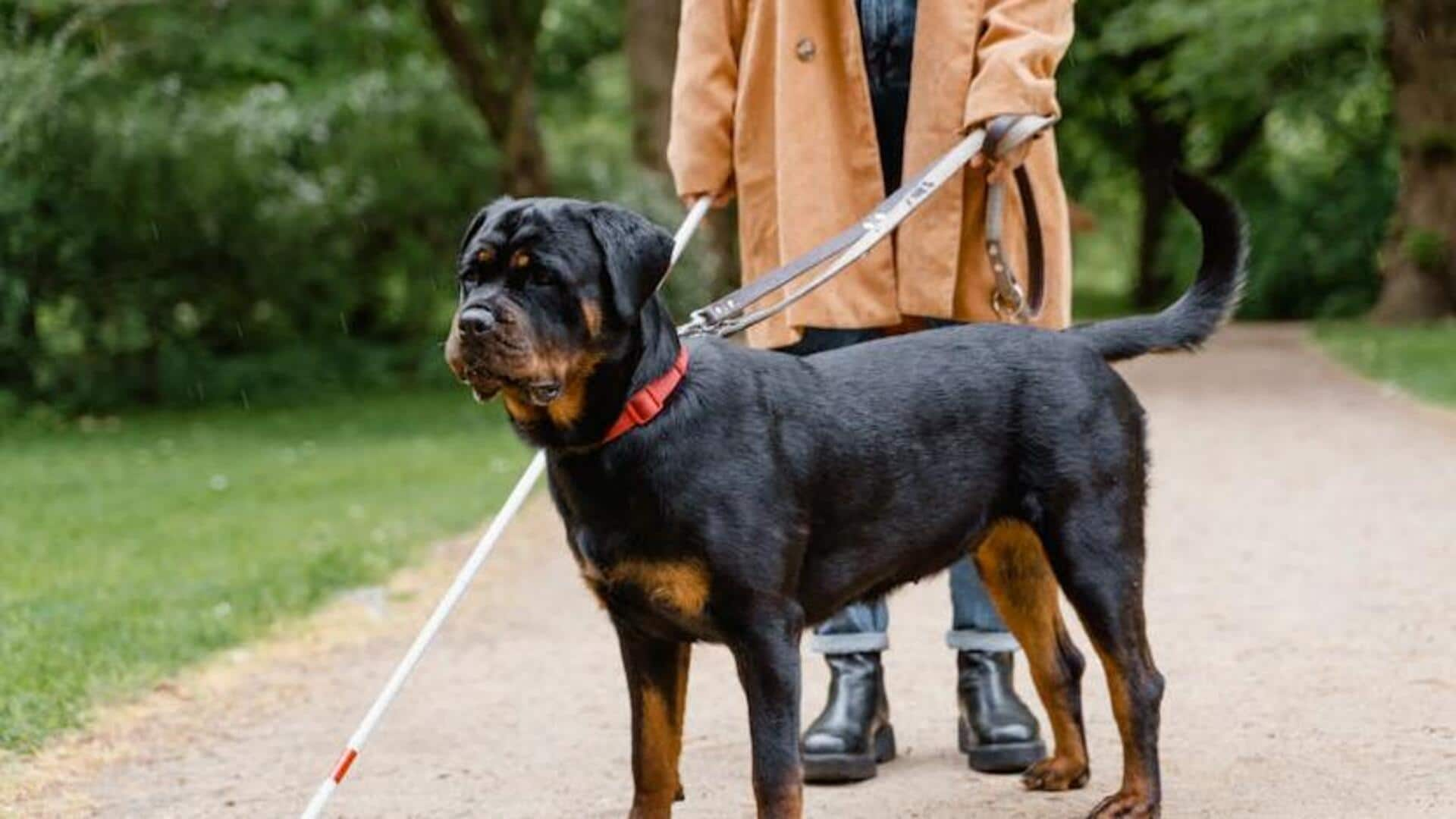
Improve your Rottweiler's socialization skills with these training strategies
What's the story
The Rottweiler, a robust and intelligent breed, is celebrated for its unwavering loyalty and innate protective instincts. Hailing from Germany, these powerful dogs were originally bred to herd livestock and pull butchers' carts. In contemporary settings, they are esteemed as family pets. To ensure they grow into well-adjusted and amiable adults, it is crucial to initiate their socialization at an early stage.
Tip 1
Start socialization early
Initiate socialization for your Rottweiler during their most formative period, which is between three to 12 weeks old. During this phase, expose them to a variety of people, diverse environments, an array of sounds, and other animals, but always in a controlled setting. These positive early experiences are instrumental in shaping a sociable and obedient adult Rottweiler.
Tip 2
Use positive reinforcement
When training your Rottweiler, it's beneficial to use positive reinforcement. This approach involves rewarding your dog for their good behavior with treats, verbal praise, or some playtime. Such rewards encourage them to repeat these behaviors in the future. Consistently using this technique fosters a trusting relationship and helps your Rottweiler positively associate meeting new people. It also helps your dog encounter different situations, leading to better social experiences.
Tip 3
Consistent exposure is key
For effective socialization training, maintain a consistent routine of introducing your Rottweiler to various stimuli. This should be done regularly and with care to ensure each new experience is positive and nonthreatening. Such consistent exposure helps your Rottweiler adapt and reduces the likelihood of negative or aggressive reactions when faced with new people, environments, or situations.
Tip 4
Enroll in puppy classes
Enrolling your Rottweiler in puppy classes is highly recommended. These sessions provide structured socialization opportunities with other dogs and people, all under the guidance of professionals. Additionally, they serve as an educational platform for your Rottweiler to learn basic commands. Such training is invaluable for behavior management and ensures your pet's interactions are both positive and controlled.
Tip 5
Monitor body language
It's essential to interpret your Rottweiler's body language during social encounters. Look for discomfort signs, such as a tucked tail, ears lying flat against the head, or hesitation to interact. These behaviors suggest stress or fear. Timely recognition of these signs is key, allowing you to intervene and prevent the situation from developing into aggression or increased fearfulness in your Rottweiler.